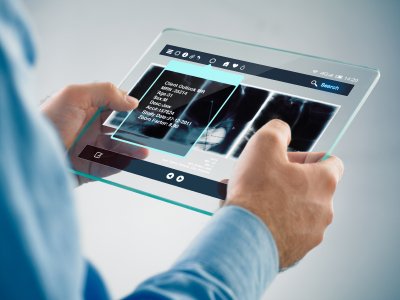#mDetailerⓇ in the Pharmaceutical Industry
#mDetailerⓇ have arguably defined how we live in our modern digital age; the mobile app development technology and tablet technology has lead to a vast range of apps that offer seemingly infinite functionality. The pharmaceutical industry has been slow to tap into this vast potential, but that tide is slowly starting to turn.moPharma

Outstanding Need
The pace of software development will always outpace wide scale industry adoption, but there is a clear need to implement mobile app development technology in the pharma industry. A recent study conducted by The School of Pharmacy and Biomolecular Sciences at Liverpool University aimed to examine the industry consensus of implementing mobile app within pharmacies. Their survey was conducted across 600 pharmacies. The data concludes that pharmacists are supportive of mobile apps in healthcare, but a number of factors in the form of risk, company policy, and lack of regulation, restricts their use in modern day pharmacy practice. This issue is amplified with reference to national chain pharmacies.
This study was conducted as recently as April 2015, which is interesting as it shows that the debate is still being raised. It is also concerning that commercial legislation and company policy stands in the way of digital innovation. This restricts the opportunity to adopt technology, stifling development that could better patient care.
Current Situation
The wider pharmaceutical industry has slowly begun to introduce apps to the digital marketplace, in particular to assist patient adherence. One notable application in this environment is the app, launched by one of the leaders in the pharmaceutical sector. It has great features, such as giving patients information about their prescription, and the opportunity to set up simple reminders and medication schedules. However, the app is quite poorly designed, with a very basic user interface.
Alongside prescription based medication, also aimed to assist patients in more general health issues, such as giving up smoking, with the opportunity for a digital ‘quit coach’ in your pocket. These ‘light-touch’ applications facilitate user need, without stumbling across strong legislative barriers. Fortunately, these are becoming more common, with a raft of apps of this type now in various app stores across many platforms.
One of the larger challenges to address is the unification of apps across different markets and languages. Many of the apps offered by some of the larger pharma companies are either exclusive to certain markets, or only produced in English, then released to multiple countries. There needs to be a strong strategic direction made when releasing an app to a global market to ensure the broadest benefit to the greatest number of patients.
It's not all good news however, some of the key players in the Pharmaceutical Industry have yet to engage with Mobile Applications as part of their product offering. Bayer Medical for example have three official medical apps according to their company website, these apps are only available for iOS. Each app suffers from poor user interface design, limited international availability and minimal long term support, one of their apps for example was last updated in 2012.
There is a need to adopt digital technologies, by doing so it allows Pharma companies to stay on-trend, embracing and benefitting from the advancements in consumer technology, bridging the gap to patients.
There is a need to adopt digital technologies, it allows Pharma to embrace the advancements in consumer technology, bridging the gap to patients.
Innovation
Aside from the barriers, it is possible to successfully implement apps in this industry. Revolutionary application that could act as a model for the future of healthcare consultations. It completely shifts the perception of the current referral process, by bringing a GP quite literally to your pocket. The app offers patients the chance to book consultations directly with a GP, Nurse, or Specialist Consultant, through video chat or in person. The service is paid for by the user at a relatively low monthly cost, acting as an alternative arm to private healthcare, which could create a real market shift, as it challenges existing providers in the way it approaches the patient journey.
Future
Mobile applications are merely the first step in a long future of technological innovations that will make their way into the healthcare sector. Currently though, the range of pharma apps on the market are still lacking. To deliver the best customer service, a broader number of pharma companies need to engage with the mobile landscape. Additionally, the apps that are out there are either out of date and poorly designed, App. There is a strong need to ensure that an app is designed from a patient perspective, with a clear user interface, and strong user journey. Furthermore, pharma companies need to provide patients with updates to their apps for future mobile OS releases, and updated functionality.
It is early days for the implementation of apps within pharma, but a field that is waiting to be taken advantage of.
Innovation awaits.





Discuss about post